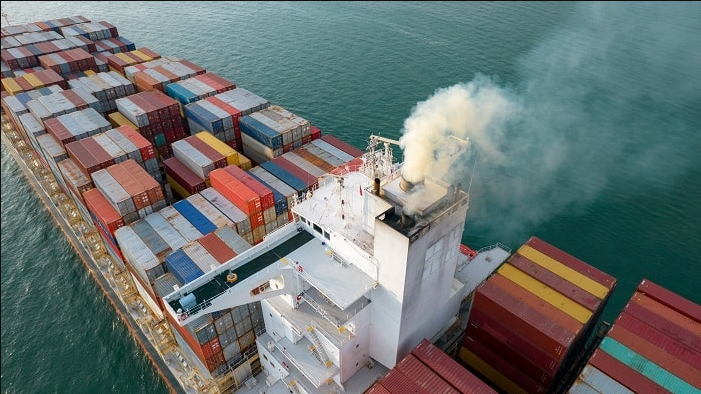At the United Nations Global Compact (UNGC) High-Level “Ocean for the Future” meeting held at the UN headquarters in New York on September 23, business leaders from various sectors—including shipping, ports, energy, and banking—called on International Maritime Organization (IMO) Member States to adopt a comprehensive global regulatory framework.
The aim is to accelerate the maritime industry’s transition to net-zero emissions by 2050.
Shipping executives, including MSC CEO Soren Toft, representing the world’s largest liner companies, urged the IMO to implement stringent regulations that would address the cost disparity between conventional marine fuels and net-zero alternatives like biofuels and synthetic LNG.
Currently, these low-emission fuels are two to five times more expensive than traditional options.
This appeal comes just before the IMO’s Marine Environmental Protection Committee (MEPC) meeting at the end of September, where discussions will focus on developing a global fuel standard and carbon/GHG pricing.
The discussions will cover how to charge, who will collect the fees, and which fuels qualify as low-carbon or low-GHG.
MSC reaffirmed its commitment to achieving net-zero decarbonization by 2050. To this end, the company has ordered over 100 dual-fuel LNG container ships and is retrofitting more than 300 vessels in its fleet.
Although the technology for running ships on net-zero fuels exists, MSC highlighted that the production scale and infrastructure for these fuels are not yet sufficient for widespread adoption.
The company hopes the upcoming MEPC meeting will result in a consensus that balances ambition with practical solutions, signalling that governments are ready to support the industry’s transformation efforts.
The delegates at the meeting also emphasised the importance of fair, inclusive, and ambitious regulations, noting the crucial role of the human element in achieving net-zero goals. Seafarers will need to be upskilled to safely operate ships powered by cleaner fuels, a critical component of reaching the 2050 target.
The meeting further stressed the necessity of a sustainable and resilient global economy capable of adapting to disruptions.
Trade facilitated by liner shipping has, for decades, allowed communities to access global markets.
Recent global disruptions have underscored the critical role of commercial shipping in maintaining world commerce.
A well-designed regulatory framework, incorporating future fuel requirements and mechanisms like carbon pricing, will be essential to closing the gap between current standards and the future demands of the maritime industry, ultimately driving the adoption of net-zero fuels, according to MSC.
